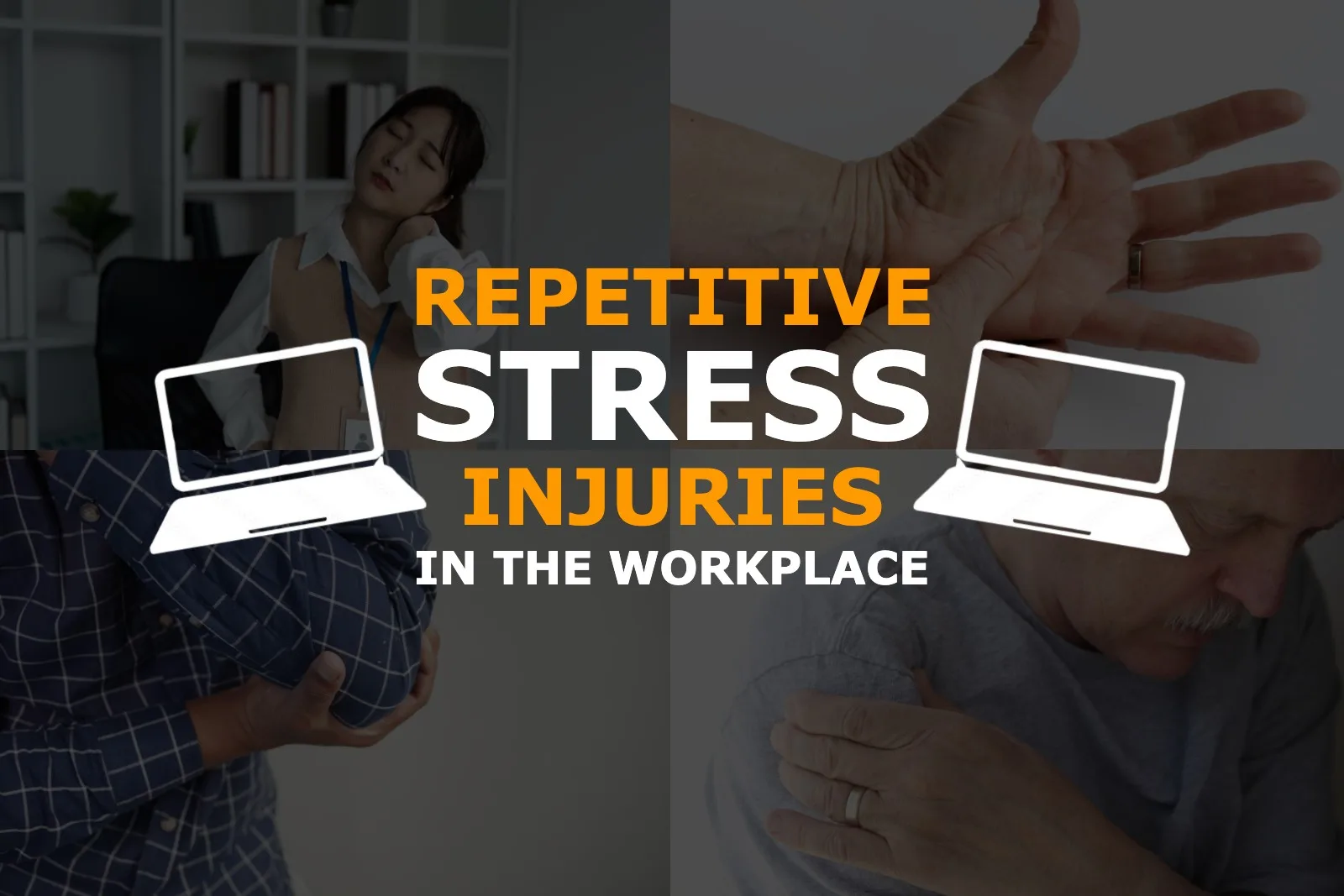What Is Considered a Repetitive Stress Injury in the Workplace?
Repetitive Stress injuries (RSIs), also known as repetitive trauma injuries, are some of the most common work-related conditions, especially in physically demanding or repetitive-task environments. Unlike acute injuries that happen suddenly, repetitive stress injuries develop over time due to repeated movements or strain on specific parts of the body.
At RTRLAW, we help injured workers across Florida secure the benefits and compensation they deserve for all types of workplace injuries, including those that develop gradually. Understanding what qualifies as a repetitive stress injury and how to file a claim is key to protecting your health, your job, and your future.
How Do Repetitive Stress Injuries Typically Occur?
A repetitive stress injury occurs when continuous or repeated physical activity causes damage to muscles, tendons, ligaments, nerves, or joints. These injuries often result from small, repeated motions performed over weeks, months, or years, especially in jobs requiring:
- Typing or data entry
- Assembly line work
- Manual labor involving lifting, twisting, or reaching
- Operating vibrating machinery or power tools
- Frequent use of handheld tools
- Working in awkward postures or non-ergonomic environments
Since RSIs often develop over time, workers may not recognize the injury until symptoms interfere with daily life.
janellene lopez
This firm is the best ! Ask for Patrick Carroll if you were injured in a work accident! He is amazing and very straight forward! He tries his best to satisfy his customers.
What Are the Most Common Types of Repetitive Stress Injuries?
Certain injuries show up time and again among employees in repetitive-motion roles. Recognizing these patterns can help workers and employers take preventive measures before a condition becomes chronic.
Some of the most frequently reported workplace repetitive stress injuries include:
- Carpal Tunnel Syndrome: Nerve compression in the wrist from typing or repetitive hand motions
- Tendonitis: Inflammation of tendons due to repetitive strain or overuse
- Bursitis: Inflammation of the bursae, typically from prolonged pressure or repetitive movement
- Rotator Cuff Injuries: Shoulder damage from repeated overhead lifting or motion
- Epicondylitis (Tennis/Golfer’s Elbow): Inflammation of elbow tendons from repetitive forearm movements
- Trigger Finger: Finger becomes stuck in a bent position due to repeated gripping or force
- Back and Neck Strain: Cumulative wear from lifting, bending, or prolonged standing
If you’re experiencing any of these conditions, it’s important to pay attention to your body’s warning signs. There are specific symptoms that could possibly point to a repetitive trauma injury.
How Do You Know if You Have a Repetitive Stress Injury?
Recognizing a repetitive stress injury early can make a significant difference in recovery time and long-term outcome. But because the onset is gradual, symptoms are often overlooked.
Signs of a repetitive stress injury may develop gradually and worsen over time. Common symptoms to look out for include:
- Persistent pain or soreness in a specific area
- Numbness or tingling sensations
- Swelling or inflammation
- Weakness or reduced range of motion
- Discomfort that increases with continued work activity
If you notice these symptoms, it’s important to seek medical attention promptly and report the condition to your employer. Early diagnosis can help prevent further injury and may support your workers’ comp claim.
Are Repetitive Stress Injuries Covered by Workers’ Compensation?
Unlike injuries caused by one-time accidents, repetitive stress injuries can be harder to prove in a workers’ compensation claim. However, that doesn’t mean they’re not compensable.
In Florida, repetitive stress injuries are generally covered under workers’ compensation laws. However, proving that your injury is work-related can be more complicated than with a single-event injury.
You must show:
- That your injury was caused by a prolonged exposure to repetitive work-related tasks
- That you were subjected to a hazard at work that is worse than what the general public is exposed to
- That objective medical evidence supports the diagnosis
Once your injury is confirmed as work-related, you may qualify for several types of workers’ comp benefits.
RTRLAW can help you gather documentation, medical records, and work to secure testimony to prove your claim. We can help build a case and fight for the benefits you deserve.
What Benefits Can You Recover for a Repetitive Stress Injury?
Workers who suffer from repetitive stress injuries often face medical costs, time away from work, and even long-term disability. Fortunately, workers’ compensation is designed to help ease this burden.
Injured workers may be entitled to several benefits, including:
- Medical Care: All necessary and authorized treatment costs, including physical therapy, medication, and surgery if needed
- Wage Replacement: Temporary total or partial disability benefits while you’re unable to work
- Permanent Impairment Benefits: If your injury causes lasting damage or limitations
Navigating the workers’ comp system can be confusing, especially for injuries that develop over time. RTRLAW’s Workers’ Comp attorneys can support you through this process and protect your rights every step of the way.
Contact RTRLAW & Get the Help You Deserve
Because repetitive stress injuries occur over time and can be harder to prove, insurance companies often challenge or deny these claims. That’s where we come in.
At RTRLAW, we understand the challenges injured workers face and have decades of experience fighting for clients across Florida. Our workers’ compensation attorneys will:
- Help you file your claim accurately and on time
- Coordinate with medical providers to support your diagnosis
- Represent you at mediations and hearings if your claim is denied
- Negotiate with insurers to maximize your benefits
- We work on a contingency-fee basis, meaning you pay nothing unless we win your case.
If you’re experiencing pain or disability due to repetitive work tasks, you may have a valid workers’ comp claim. Don’t let a slow-developing injury derail your career or your health.
Contact RTRLAW today by calling 1-833-HIRE-RTR to schedule a free, no-obligation consultation. Let us help you protect your rights and secure the compensation you deserve for your repetitive stress injury.


 CALL US NOW
CALL US NOW TEXT US NOW
TEXT US NOW



























